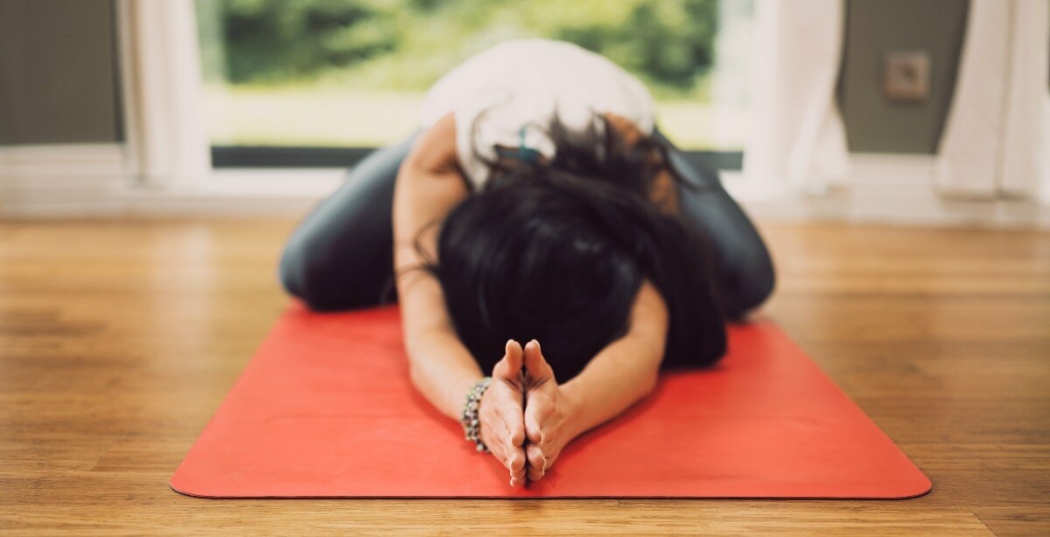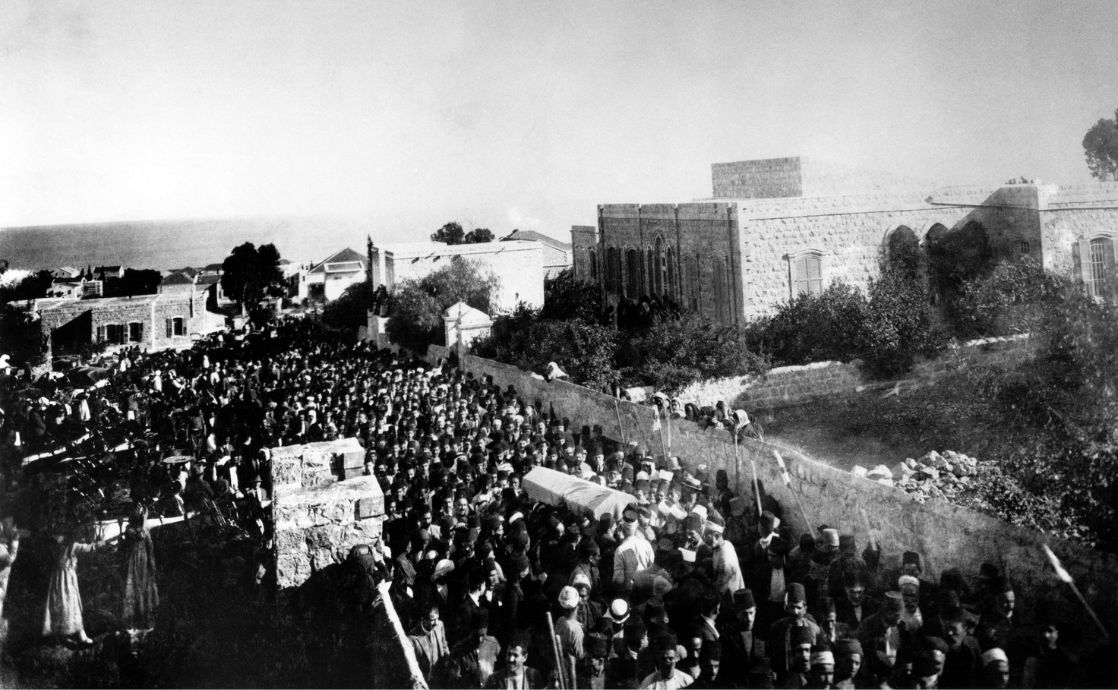
It’s no surprise this day in age that physical and spiritual health are inextricably linked. Most of us learn through personal experience the positive impact that physical health has on our mood, focus and energy, just as we see that time spent engaged in activities that feed our spirit in turn improves our physical health. In Star of the West, Abdu’l-Baha told us that “[t]he more healthful his body the greater will be the power of the spirit of man,” and in The Promulgation of Universal Peace, He said that the “training and development of the physical body…ensures strength and growth.” We also know, from H.M. Balyuzi’s The Centre of the Covenant, that Abdu’l-Baha, whose humble life of service is an example that Baha’is aspire to, had a habit of taking a daily walk.
There are as many ways of maintaining good physical health as there are types of humans on this planet. Back in 2020 alternating swimming and running five days a week was my happy place. Then COVID shut down the swimming pool where I swam laps and the track I ran on. For a few weeks I floundered. Then I discovered online yoga classes. Initially I felt frustrated by the slow pace and the fact that I couldn’t do the more challenging poses. Coming from a background of intense physical activities that really got my heart pounding, initially the focus on breathwork and presence didn’t interest me. Fortunately, I was intrigued enough by the challenge of balancing on my forearms and doing handstands to stick with it long enough to build strength and flexibility. As I did, the interconnectedness of the quality of my breath and attention to my thoughts, and the success with which I was able to enter and hold poses became increasingly evident. I began to practice every morning, and quickly found myself excited to get out of bed knowing that I had my yoga practice to look forward to.
I’ve been doing yoga for three years now. I’ve gained flexibility and physical strength, but just as importantly, yoga has strengthened my spiritual muscles. Here are five spiritual principles that my yoga practice nurtures in me:
1. Self-discipline
In a letter addressed to a number of individual Baha’is, the Universal House of Justice writes that “Divine teachings shed light on reality, enabling every soul to investigate it properly and to acquire, through the exercise of personal discipline, those attributes that are to distinguish the human being.” To guarantee that I actually do yoga before the needs of others and the responsibilities of the day infringe on my practice, I have to get up at dawn. This means making sure I get to bed at a reasonable hour, and don’t allow the “maybe I’ll just stay in bed a little later this morning and do an evening practice today” voice to take over. I set my wristwatch next to my mat (so that there are no cell phone interruptions), and I give myself a minimum of one hour to flow however my body feels it wants to. I’ve noticed that consistency with my yoga also increases consistency with daily prayer and meditation, increases my capacity for mental work, and helps me to be more conscious in how I build and maintain relationships with friends and family members.
2. Courage
For me, courage is the willingness to trust my internal compass when it is telling me to step out of my comfort zone and try something that I may not be very good at in the hope that doing so might help me to grow. No matter what happens in my yoga practice, there is always something that comes up that teaches me about courage. It could be integrating a new pose into my practice that requires strength or flexibility that I may not yet have, or slowing my flow down and breathing into resistance I’m feeling to facing fear. This year strengthening my courage muscle has helped me to finally pursue my dream of moving to the other side of the world to explore new ways that I can be of service to others. Courage implies doing what you know to be right even if it differs from what others around you are doing. As May Angelou famously said, “Courage is the most important of the virtues, because without courage you can’t practice any other virtue consistently. You can practice any virtue erratically, but nothing consistently without courage.”
3. Self-awareness
A couple of years ago I was taking a yoga class whose theme was “transitions.” As we transitioned from pose to pose, the teacher asked us to be mindful about how we moved from one pose into the next. She asked us whether we were abandoning a pose prematurely to escape discomfort, or moving through the transitions slowly with intention. She explained that the attention that we give to the end of one chapter also sets the tone for how the next chapter will unfold. I consider myself a relatively fast-paced person in my daily life. Yoga constantly reminds me to slow down and pay attention to whether I’m moving, breathing, and thinking with grace, or rushing to achieve the next goal. As Shoghi Effendi is reported to have said, “greater than the prayer is the spirit in which it is uttered” and perhaps greater than the way it is uttered is the spirit in which it is carried out. Yoga has made me far more aware of the tone I’m using when I speak to others; the care with which I complete projects I’m working on; and even how I take my leave from situations and relationships that are no longer facilitating my growth. I do still slip up and do or say things that lack grace of course, but I notice myself choosing to approach transitions with greater awareness more often than I used to. Slow though it may be, I’m making progress.
4. Humour
Abdu’l-Baha loved laughter, and His laughter was often a source of solace. He said, “[i]t is good to laugh. Laughter is spiritual relaxation.” When He and his companions were imprisoned and living under the utmost deprivation and difficulties, He recounted that at the close of the day each of them “would relate the most ludicrous event which had happened. Sometimes it was difficult to find one, but always they would laugh until the tears would run down their cheeks.”
I am constantly integrating new things into my yoga practice, which guarantees that there will be failure—an excellent tool for developing one’s sense of humour! I’ll never forget the day I decided to try some strength drills that involved standing on my hands propped up against the wall holding my body weight above me. I remember thinking how proud I was that I’d managed to hold myself up for so long, and then becoming aware that I was very wobbly all of a sudden. My arms gave way, I collapsed onto my head, and my body crumpled into a heap on the floor! It was a supremely ungraceful but very funny moment. I lay on the floor laughing at my lack of foresight until I cried. There have been many moments of failure since. When facing the daily tests that life sends my way, the ability to laugh has helped me to navigate through them with greater ease.
5. The importance of community
Abdu’l-Baha said that while “[s]ome animals are isolated and lead a separate existence away from their kind…this is impossible for man. In his life and being cooperation and association are essential. Through association and meeting we find happiness and development, individual and collective.” Even during the pandemic, when I was forced to isolate in my apartment, I discovered a supportive community of fellow yogis on Instagram. We ran challenges and shared videos of our practices to connect with each other and get feedback. Having recently moved to a new country, I’ve been trying to build new connections. I came across a sunset yoga classes under a stand of eucalyptus trees on a lake that is on the outskirts of the city. I’ve only been twice so far, but I plan to go again next week in the hope that I begin to make some new friends from among the other yogis.
There are many physical practices that help us strengthen our spiritual muscles. Do you have an activity that you engage in regularly that helps you build physical and spiritual health? I’d love to hear how it has nurtured spiritual strengths in your life in the comments section below!
Ariana Salvo
Ariana Salvo was born in the United States, and spent sixteen years of her childhood on the Mediterranean island of Cyprus. She moved to Prince Edward Island to do her master’s degree in Island Studies, fell in love with the tightly knit community, and has never left. When not writing, she can be found exploring art at galleries around the world, flower farming, traveling to remote islands, hiking and taking photos of the wild natural landscapes of Canada’s eastern shore, teaching English to international students and reading historical fiction with a good cup of tea.
Source link



